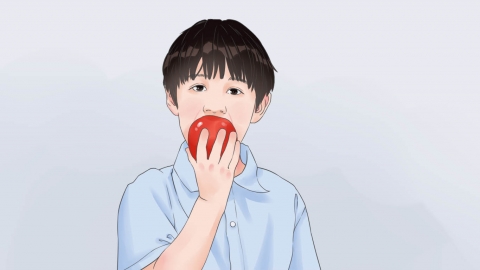Can infants and young children with exanthema subitum eat apples?
Infantile急疹, commonly refers to roseola infantum. Generally, if the child's digestion is normal and there is no history of allergies, apples can be consumed. However, apples should not be eaten if the child experiences severe vomiting, diarrhea, or has an allergic reaction to apples. If in doubt, it is advisable to consult a doctor in advance. Detailed analysis is as follows:

When the child's mental state is good, appetite is normal, there are no significant gastrointestinal discomforts such as vomiting or diarrhea, and there has been no previous allergic reaction to apples, then a moderate amount of apple can be given. Apples are rich in vitamins and water, which can supply nutrients and promote metabolism. They can be prepared as apple puree or apple water to aid digestion and avoid burdening the gastrointestinal tract.
If the child is in a high fever phase, accompanied by frequent vomiting and diarrhea, with weakened digestive function, eating apples might worsen gastrointestinal discomfort. If the child previously had allergic reactions to apples, such as rashes or diarrhea, or experienced discomfort upon first trying apples, consumption should also be stopped. In these cases, gastrointestinal health should be prioritized and stabilized first, and small amounts of apples can be reintroduced after symptoms subside.
Monitor the child for any reactions after eating apples. Avoid adding sugar, salt, or other seasonings during preparation. If any abnormalities such as bloating or diarrhea occur after consumption, stop immediately and consult a doctor if necessary, to ensure dietary safety and support recovery.










